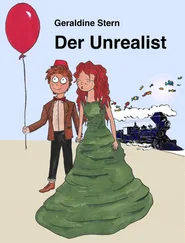“What do they teach us?” She held out a graceful hand and began checking off subjects. “Music, yes, but music of the most banal kind—” She tossed back her head: “Tra-la-la, fa-di-da,” she trilled mockingly. “Little airs and dances for drawing-room entertainment. Nothing that one might have to sweat over.” She touched a second finger. “Drawing—decorative landscapes in quiet pastels. But may we learn to hack life out of stone like a Michelangelo? Or push juicy oil paint around canvas to portray human agony, like a Goya? ‘Oh, draw, by all means, little girl, but please, don’t aspire to be an artist.’ And what else may we learn? Languages? Very good; to gain another language can be to see into another soul, do you not think?”
I raised my chin in a little gesture of assent. I did not want to risk her negative opinion in confessing that I had not mastered any other language. But she was launched: she did not need any wind from me to fill her sails.
“So, we are drilled in foreign grammars and vocabulary. But in how we apply this knowlege, we are censored. Show me the French class where girls are given to read the passionate poems of a Ronsard. Oh no. This is not for us. We must not corrupt our delicate minds. Neither may we read the essays of the French revolutionaries; we, who are the daughters of revolutionaries! No, there must be no argument, no strong emotion. A little vapid romance perhaps, but not love. Not passion. Not that which beats at the very heart of women’s being!” She was pulled tight as a wire, standing almost on her toes, her hands drawn up now, clenched together under her chin.
“Perhaps you yourself should teach young women?” I interjected. “I’m sure your ardor for the subject would suit you to the profession.”
She laughed, the tension going suddenly out of her, and shook her head. “Who would hire me to corrupt their daughters’ minds? And even if they did, I have not mastered that which I would wish to teach. I have not scaled the cliffs of knowlege, only meandered in the foothills. If I have reached any heights at all in learning, it is as a sparrow-hawk who encountered a favorable breeze that bore it briefly aloft.” She flopped down onto the chaise in a flutter of skirt, as unself-conscious as a little girl. “You have unmasked me! I am one of those who knows how I wish the world were; I lack the discipline to make it so.”
“You are severe upon yourself.”
“Quite the opposite, I assure you. If I were more severe I should be more accomplished. But perhaps one day I will be entrusted with daughters of my own, and if so, I swear I will not see their minds molded into society’s simpering ideal of womanhood. Oh, how I would like to raise writers and artists who would make the world acknowlege what women can do!” She gave a light laugh. “Of course, I will first have to find a partner willing to share his life with such an opinionated termagant.”
There was an awkward silence. I do not honestly know how I might have filled it, if the Reverend Day had not returned at that exact moment. I should have proposed to her then and there, and spared us both an agony of pointless waiting. But return he did, and the moment passed, and she withdrew to see to the recovering invalid and to be useful in the nursery.
Generally, I relished the chance for conversation with Daniel Day: he was a great reader whose quick intelligence and large heart always illuminated every argument. That morning, he wanted to discuss the works of Dr. Channing, whom we both admired. Daniel was expounding at some length on the doctor’s masterly categorization of greatness, which he made to exist in descending ranks, depending on its essential roots in the moral, the intellectual, or the realm of action. I remember arguing that moral greatness had little meaning without action to effect the moral end. It was, I see now, the rehearsal of the great argument that would animate my life; the selfsame argument that has brought me to these wintery ridges, at this grim time. But that morning, as we walked in Daniel Day’s garden, our scarves drawn up to our chins and the frost crunching underfoot, I had difficulty erecting the scaffolding to shore up my views. My eyes drifted often to an upper dormer. Even through the closed window, it was possible to hear snatches of a sweet voice, crooning a lullaby to a fortunate newborn.
How often it is that an idea that seems bright bossed and gleaming in its clarity when examined in a church, or argued over with a friend in a frosty garden, becomes clouded and murk-stained when dragged out into the field of actual endeavor.
If war can ever be said to be just, then this war is so; it is action for a moral cause, with the most rigorous of intellectual underpinnings. And yet everywhere I turn, I see injustice done in the waging of it. And every day, as I turn to what should be the happy obligation of opening my mind to my wife, I grope in vain for words with which to convey to her even a part of what I have witnessed, what I have felt. As for what I have done, and the consequences of my actions, these I do not even attempt to convey.
Many ill things happened in those weeks of waiting, encamped on the outskirts of Harper’s Ferry. Our side made several small harassing actions. Townsfolk loyal to the North crossed the river to come to us, and spies and scouts from our side ventured into the town. When one of ours, a man widely liked, was killed in an exchange of fire, the major ordered a retaliation which, in my view, went too far. He ordered a party to burn down all the town buildings that stood between the armory and the railroad bridge. Most of these were civilians’ homes or businesses, and since their charred ruins made excellent cover for the Confederates’ sharpshooters, I cannot see that any military purpose was served by their destruction. When I expressed that to him, he turned livid and refused thereafter to attend my services, or even exchange a greeting with me. Later, I learned that this very major, Hector Tyndale, had been detailed to escort Mrs. Brown, two years earlier, when she brought her executed husband’s body home from Virginia to New York. Brown had prophesied that Harper’s Ferry would be destroyed, and now much of it had been. A part of me wondered if the Old Man’s spirit hadn’t somehow possessed Hector Tyndale and caused him to act so. Who knew better than I the power of that man to possess? For him, I had been a tool, to be used with no more thought than a blacksmith gives to a pair of tongs when he thrusts it in the fire. It was a source of equal parts pride and mortification that Brown had used me, as he used every man that came to his hand, to rid our land of its abomination.
When we finally occupied the town toward the end of February, it was a scene of utmost desolation. Many of the inhabitants had fled. Those who stayed had done so only in the hope of securing their property, a hope that in many cases proved vain.
As soon as we took the town, I resolved to make a small pilgrimage to the Engine House where Captain Brown’s attempt to capture the federal armory and incite a slave rebellion had ended in bloody failure. Finding myself at last with an hour’s leisure, I made my way down to that haunted little building. I stood before it, my feelings on a seesaw between repulsion and admiration. Was ever a course of action more reckless and savage? Was ever one so justifiable, so self-sacrificing? My mind was as confounded as it had been the day I heard the news. I had been with Beth and Amy about an afternoon’s chestnut gathering in the autumn woods. Tom Higginson, another who had welcomed Brown as a guest in Concord, came up to us, all grave looks, with the news of Brown’s attempted insurrection, and his capture. He wrung his hands as he described Brown’s saber wounds and the young followers shot dead. I told Higginson then and there that I thought the deed would give impulse to freedom, no matter what became of its instigator and no matter how the states howled over it. But I hurried my youngest ones home, with my heart pounding, and made a fire in my study grate. I fed to it all the papers that documented my dealings with Brown, even though most of them had only to do with land surveys.
Читать дальше












